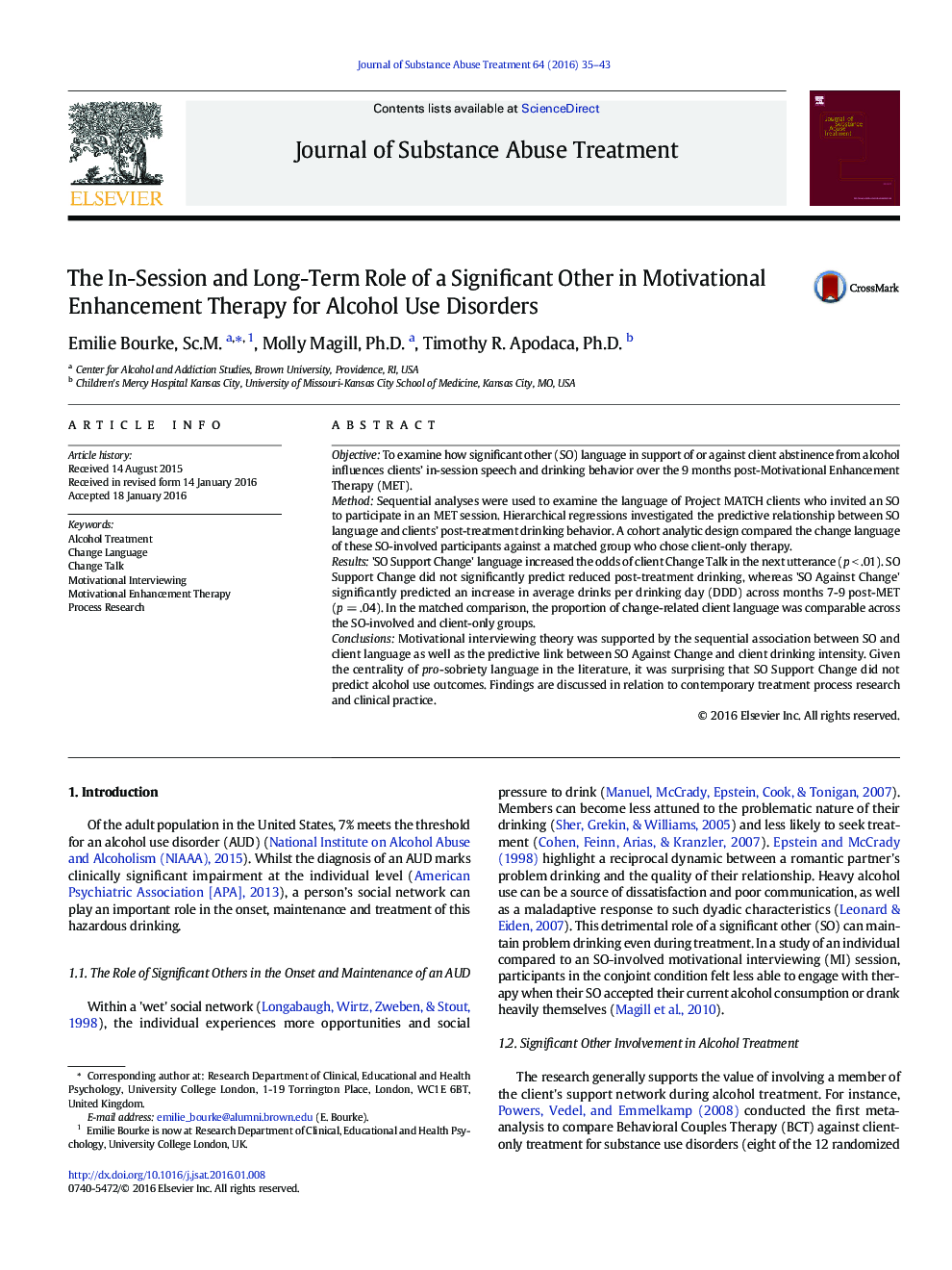| کد مقاله | کد نشریه | سال انتشار | مقاله انگلیسی | نسخه تمام متن |
|---|---|---|---|---|
| 329636 | 543569 | 2016 | 9 صفحه PDF | دانلود رایگان |
• We use Project MATCH data to examine sequential associations between the speech of clients and their significant others during Motivational Enhancement Therapy (MET) for alcohol use disorders.
• We model the potential impact of significant other language during an MET session on client drinking over the 9 months after treatment.
• Significant others' language in support of behavior change increases the odds of subsequent client Change Talk within the therapy session by nearly five times.
• Significant others' anti-behavior change language predicts increased client drinking intensity across months 7-9 after therapy.
ObjectiveTo examine how significant other (SO) language in support of or against client abstinence from alcohol influences clients’ in-session speech and drinking behavior over the 9 months post-Motivational Enhancement Therapy (MET).MethodSequential analyses were used to examine the language of Project MATCH clients who invited an SO to participate in an MET session. Hierarchical regressions investigated the predictive relationship between SO language and clients’ post-treatment drinking behavior. A cohort analytic design compared the change language of these SO-involved participants against a matched group who chose client-only therapy.Results'SO Support Change' language increased the odds of client Change Talk in the next utterance (p < .01). SO Support Change did not significantly predict reduced post-treatment drinking, whereas 'SO Against Change' significantly predicted an increase in average drinks per drinking day (DDD) across months 7-9 post-MET (p = .04). In the matched comparison, the proportion of change-related client language was comparable across the SO-involved and client-only groups.ConclusionsMotivational interviewing theory was supported by the sequential association between SO and client language as well as the predictive link between SO Against Change and client drinking intensity. Given the centrality of pro-sobriety language in the literature, it was surprising that SO Support Change did not predict alcohol use outcomes. Findings are discussed in relation to contemporary treatment process research and clinical practice.
Journal: Journal of Substance Abuse Treatment - Volume 64, May 2016, Pages 35–43
